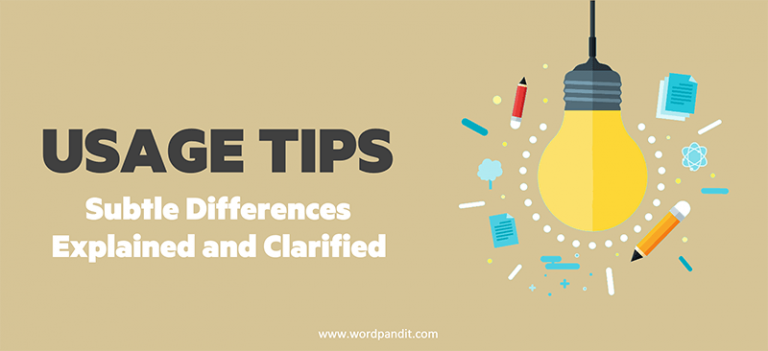Haunch vs. Hunch: How to Tell the Difference
Words can be sneaky. Sometimes, two words sound so similar that they’re easy to mix up. Take haunch 🧍♂️ and hunch 🤔, for instance. One letter separates them, yet they mean completely different things. 🔍 Imagine using hunch when talking about someone’s leg—it’d be a bit of an awkward moment, right? 🤨 Whether you’re writing, speaking, or just trying to impress someone with your vocabulary, understanding the distinction between these two words can help you avoid any embarrassing mix-ups. Let’s dive into these words so you’ll never confuse them again. 🌍
What Do They Mean? 🤖
Haunch: 🥉
This word refers to the back end of an animal or, by extension, the hip or thigh area of a person. Think of a dog sitting down—its haunches are touching the ground. 🐶 It’s the sturdy, muscular part of the hind leg that gives power. 💪 You might also hear this word used in cooking, particularly when referring to cuts of meat from the hindquarters of an animal. 🍖
Pronunciation: /hɔːntʃ/ (sounds like “honch”)
Etymology: Haunch comes from the Old French word “haunche,” which means the hip or haunch of a four-legged animal. Its origins trace back even further to the Latin word “anca,” meaning “joint” or “hip.”
Example: The dog sat on its haunches, waiting for a treat.
Synonyms: Hip, thigh, hindquarters, rump
Hunch: 👁
A hunch is either a physical action (to bend over) or a gut feeling about something. If you hunch over your desk for hours, you might get a sore back. 🥼 And if you have a hunch about something, it’s that instinctive feeling you can’t quite explain. 💭 People often talk about following their hunches when they make decisions based on intuition rather than concrete evidence. 🌟
Pronunciation: /hʌntʃ/ (sounds like “huhnch”)
Etymology: Hunch is derived from Middle English “hounchen,” which meant to push or shove, giving us today’s idea of bending or slouching. The sense of intuition may have evolved from the idea of a physical nudge or a push in a certain direction.
Example: I had a hunch that today would be a lucky day, so I bought a lottery ticket.
Synonyms: Bend (verb), intuition (noun), suspicion, inkling
Why Do People Confuse Them? 🤔
The main culprit here is their sound. 🎶 Haunch and hunch are near-homophones, meaning they sound similar but have different meanings. Plus, both words evoke some physical image—one about a body part, the other about body posture—making them even easier to confuse. It doesn’t help that both words also have to do with something physical or instinctive, adding to the mix-up potential. 👀 If you’ve ever read or heard these words quickly, it’s understandable why they might blend together in your mind.
Quick Comparison ⚙️
Haunch: Usually relates to a physical part of the body, especially hips or thighs. 💪 Think of it as something solid and muscular, often associated with animals or parts of the human anatomy. 👏
Hunch: Can be a verb (to bend over) or a noun (a feeling or intuition). 🤓 It’s more abstract or related to posture, and it often has an instinctual quality to it, like a guess you can’t quite put into words.
Example Sentences to Clarify 📘
- He sat back on his haunches, watching the horizon.
- She had a hunch that the weather would change soon.
Imagine a scenario where you need to squat—you might be on your haunches. 🚴 But if you think it’s going to rain, it’s just a hunch, no squatting required. ☔️ Another way to remember: a hunch involves bending or an instinct, whereas haunch is all about hips and power.
Mnemonic Device 🥇
Haunch: Picture a horse’s haunch – it’s all about the hind legs. 🐎 The word haunch has an “A” like “Animal,” reminding you it’s often about a body part. 🐕
Hunch: If you have a hunch, think of hunching your back. 👨🥼 The letter “U” is like a little slouch, bending in the middle. 💪 Another helpful tip: if you’re ever unsure, remember that a hunch can also mean a guess—you’re “hunching” over your thoughts.
Related Word Pairs 🔗
If you enjoyed dissecting the differences between haunch and hunch, check out these similar word pairs that often cause confusion: 🧐
- Hoard vs. Horde: Hoard means to accumulate items, often secretly, while horde refers to a large group, usually of people.
- Hale vs. Hail: Hale means healthy, while hail can either mean pellets of ice or a greeting.
Wrap-Up 🛋️
By now, you should feel more confident about the difference between haunch and hunch. 😊 Remember, a haunch is all about hips and thighs, whereas a hunch could either be an intuition or the act of bending over. These distinctions are easy to remember if you picture a squatting animal for haunch and an instinctive feeling or slouch for hunch. Keep practicing, and soon you’ll have a hunch that no word pair can trip you up! And remember—confident communication often comes down to understanding the subtle differences between similar words. 💡
Test Your Knowledge: Haunch vs. Hunch
1. The cat was resting on its ____, eyes half-closed.
2. He had a ____ that his friend would arrive early.
3. True or False: Haunch refers to a gut feeling you get.
4. Match the synonym to the correct word: Bend – ____, Hip – ____
5. The detective followed his ____, hoping for a breakthrough.
6. The rabbit was sitting back on its ____, ready to leap away.
7. She felt a sudden ____ that made her change her route home.
8. True or False: Hunch can mean both a bent posture and an intuitive feeling.
9. The wrestler shifted his weight to his ____, preparing to tackle his opponent.
10. He ____ over the desk, studying the blueprint intensely.













